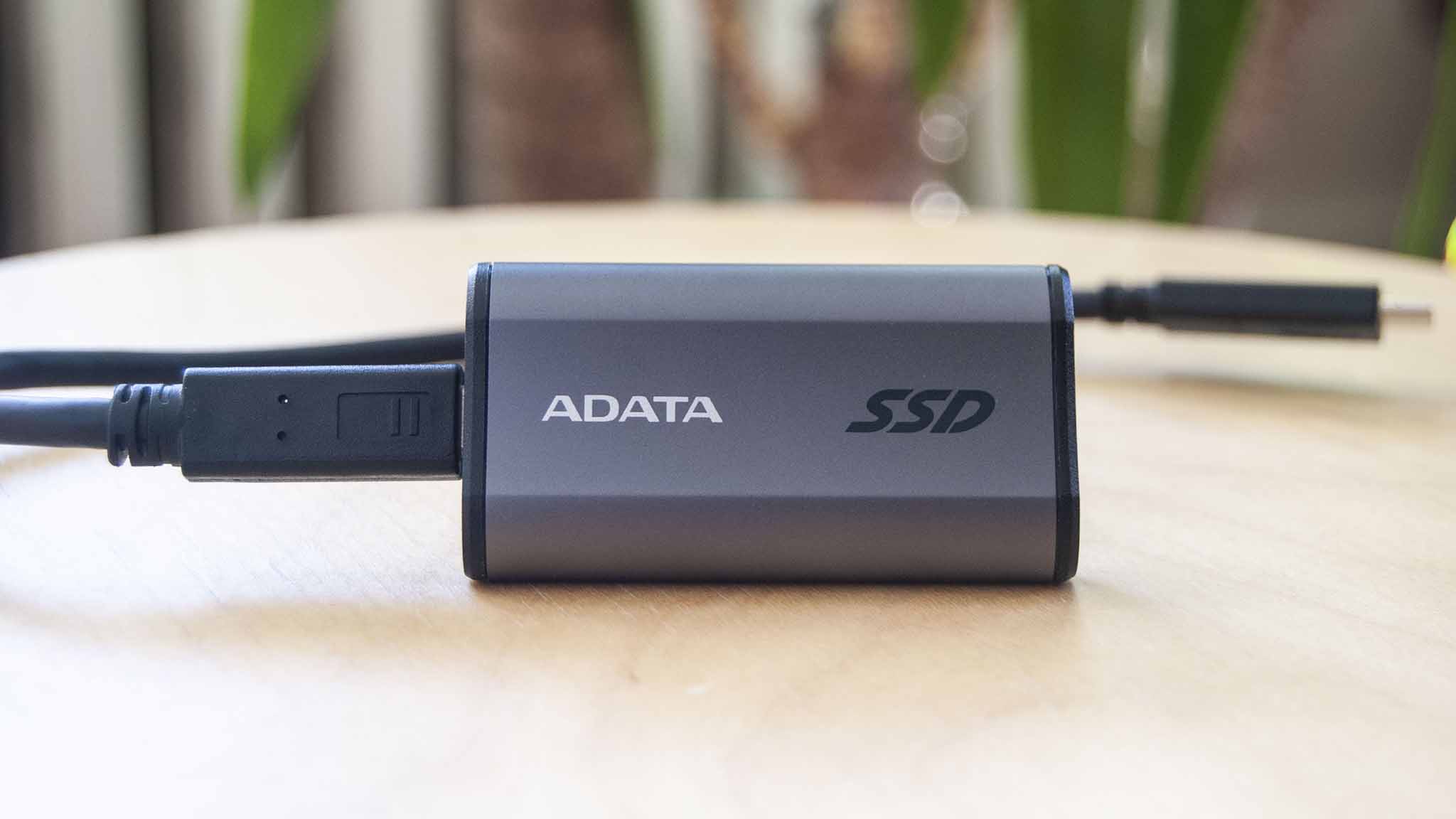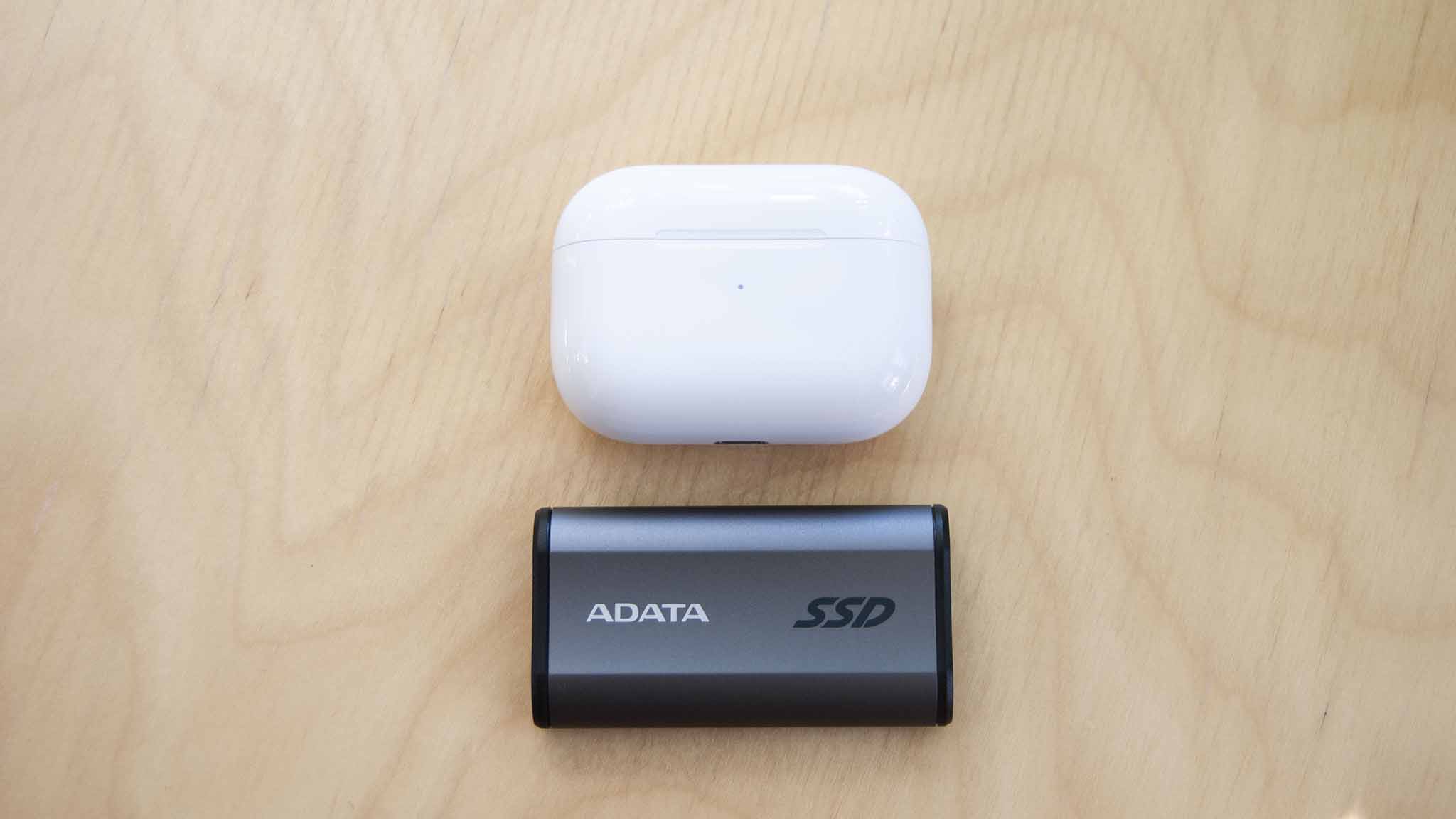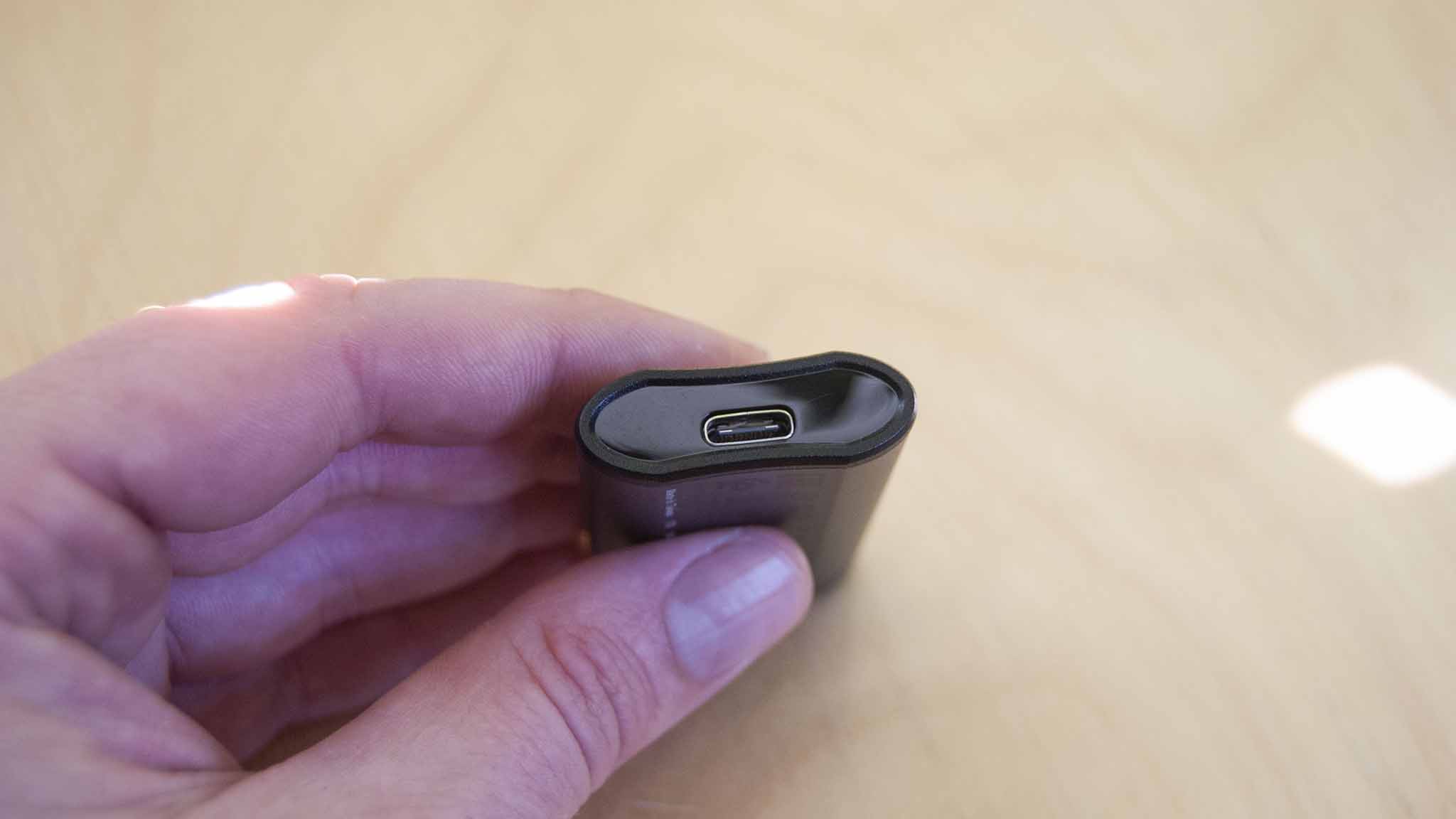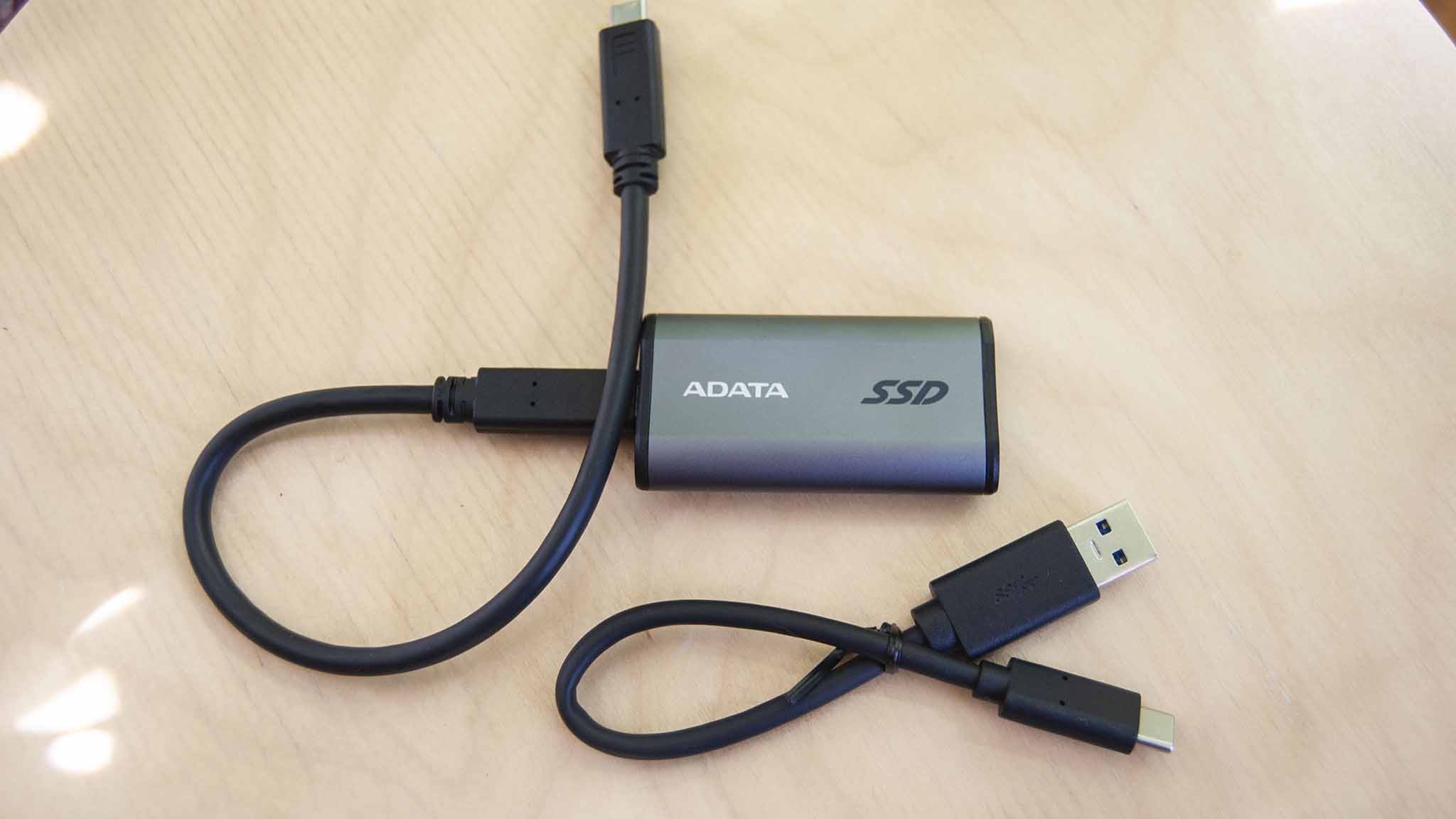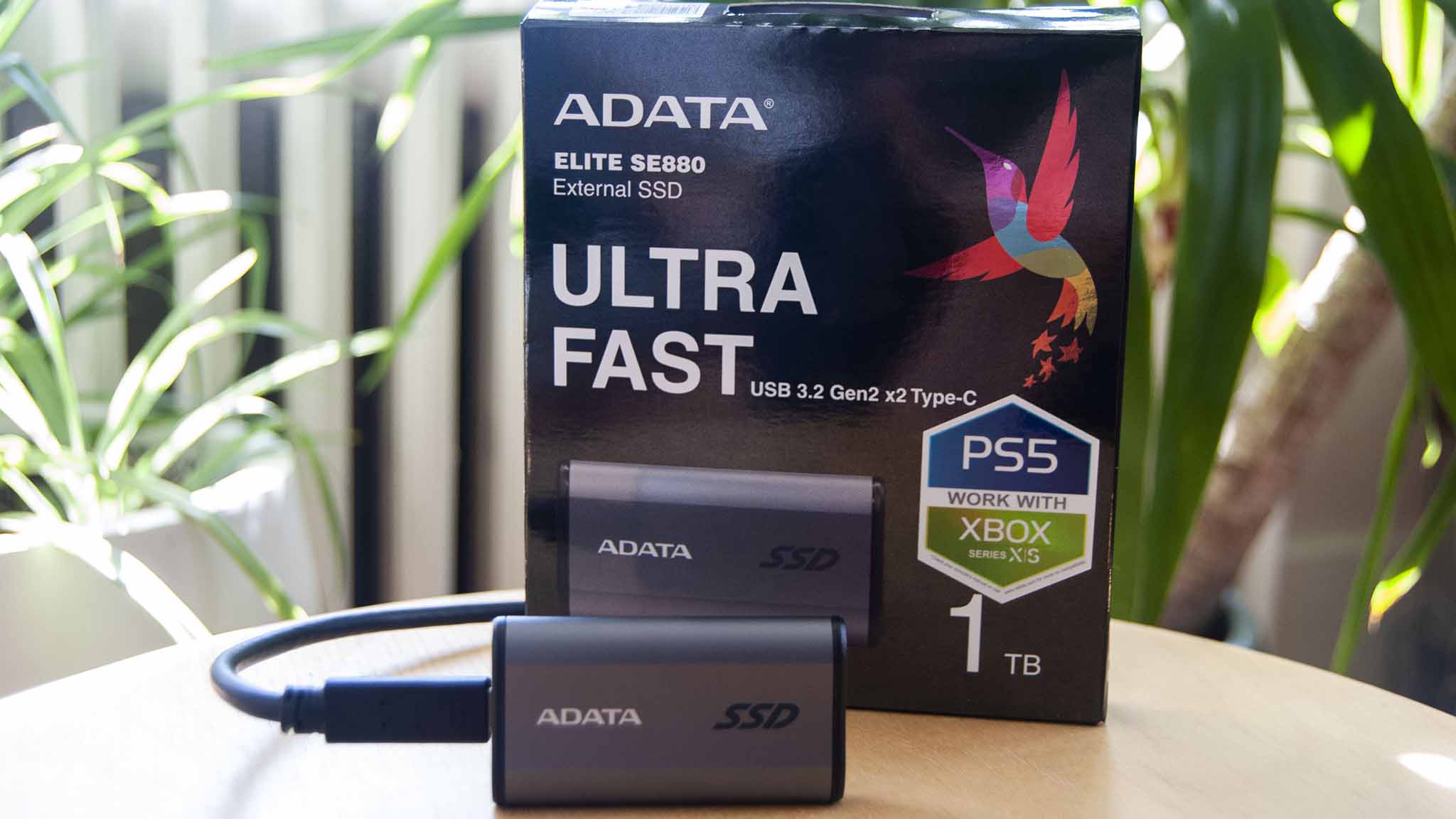Windows Central Verdict
The ADATA Elite SE880 delivers on USB-C 3.2 (Gen 2x2) 20Gbps performance promises, and it'll also work with other USB-C standards at lower speeds. Its two capacities are affordable, and the drive itself is very small and lightweight for easy carrying. As long as you don't need extra durability certifications or built-in encryption, it should be a good choice especially for those with the proper USB-C standard.
Pros
- +
Read speeds beyond 2,000MB/s
- +
Competitive pricing
- +
Super lightweight, very compact
- +
Five-year warranty
- +
Removable host cable
Cons
- -
No built-in encryption
- -
Requires a USB-C 3.2 (Gen 2x2) port to maximize performance
- -
Only two capacities available
- -
Plastic endcaps
Why you can trust Windows Central
ADATA has been making strides into the consumer PC hardware, laptop, and accessory space in recent years, delivering high-performance storage products like the XPG Gammix S70 and affordable Ultrabooks like the XPG Xenia 14. ADATA also offers a number of external SSDs with varying levels of performance.
The Elite SE880 that I have in for review is a drive that relies on the rare USB-C 3.2 (Gen2x2) standard, capable of transfer speeds up to 20Gbps. It's super compact and lightweight, and it's priced competitively. I've been using the drive for the last week to see how well it performs and, ultimately, whether or not it's worth your money.
ADATA Elite SE880: Price and availability
ADATA supplied Windows Central with a review unit of its Elite SE880 external SSD. It's available in 500GB and 1TB capacities. ADATA has the 500GB drive listed at $65 and the 1TB drive listed at $105. You can also find the Elite SE880 at B&H where the smaller versions costs about $80 and the larger drive costs about $130.
Amazon also has a listing for the Elite SE880, though reseller prices are skewed and you'll generally pay quite a bit more than the suggested price ADATA has set. The Elite SE880 is available in a Titanium Grey color. The package comes with a USB-C cable, as well as a USB-A to USB-C cable.
ADATA Elite SE880: What I like
ADATA's Elite SE880 external SSD is a about the width of two USB flash drives and is just less than an inch and a half long. It weighs only 1.1 ounces (31g) without the host cable attached, making it the lightest and most compact SSD I've ever used. The main portion of the shell seems to be made up of a magnesium alloy that's scratch resistant; it's available in a Titanium Grey color.
It's likely not going to be as durable as something made of pure aluminum, but the alloy helps keep the weight down. You can easily pop this drive into a pants or shirt pocket without really noticing it's there. The drive is ready to go as long as you have a USB-C cable nearby. One end of the drive has the USB-C 3.2 (Gen 2x2) host port with a small blue status LED next to it. The other end of the drive is flat.
Host interface: USB-C 3.2 (Gen 2x2) 20Gbps
Capacity: 500GB, 1TB
Seq. read speed: 2,000MB/s
Seq. write speed: 2,000MB/s
Compatibility: Windows, Mac, Android, Linux, Xbox, PlayStation
Dimensions: 2.55 x 1.38 x 0.48 inches (64.8mm x 35mm x 12.25mm)
Weight: 1.1oz (31g)
Warranty: Five years
The Elite SE880 is relatively affordable, even when comparing it to more common USB-C 3.2 (Gen 2) external SSDs. The 500GB model's $65 and 1TB model's $130 list prices have it in line with the likes of Samsung's T7 and SanDisk's Extreme Portable V1 SSDs. The Elite SE880 also comes with a five-year warranty to protect your investment.
All the latest news, reviews, and guides for Windows and Xbox diehards.
These competing drives have performance caps around 1,050MB/s, which is about half of what the Elite SE880 is capable of when connected to a proper USB-C 3.2 (Gen 2x2) port. That's a major factor here, especially when testing. USB-C 3.2 (Gen 2x2) employs two 10Gbps lanes instead of just one — that's where the "x2" comes in. This affords it speeds up to 20Gbps under the right circumstances.
USB naming is confusing at best, and deciphering the difference between Thunderbolt 4, Thunderbolt 3, USB4, and USB 3 isn't always easy. Thunderbolt and USB4 are technically capable of speeds up to 40Gbps, but they're also dealing with the transfer of video and PCIe data on top of standard USB data. You can use the Elite SE880 with any USB-C port (including Thunderbolt 4 and USB4), but achieving the full 20Gbps transfer speeds will only be possible with a true USB-C 3.2 (Gen 2x2) port. This is reflected in the benchmarks I ran; testing the SSD with Thunderbolt 3 and Thunderbolt 4 delivered 10Gbps speeds.
Testing with a true USB-C 3.2 (Gen 2x2) port, the Elite SE880 lives up to the performance claims made by ADATA. The graphs below show how the Elite SE880 compares to USB-C 3.2 (Gen 2) drives we've also recently tested.
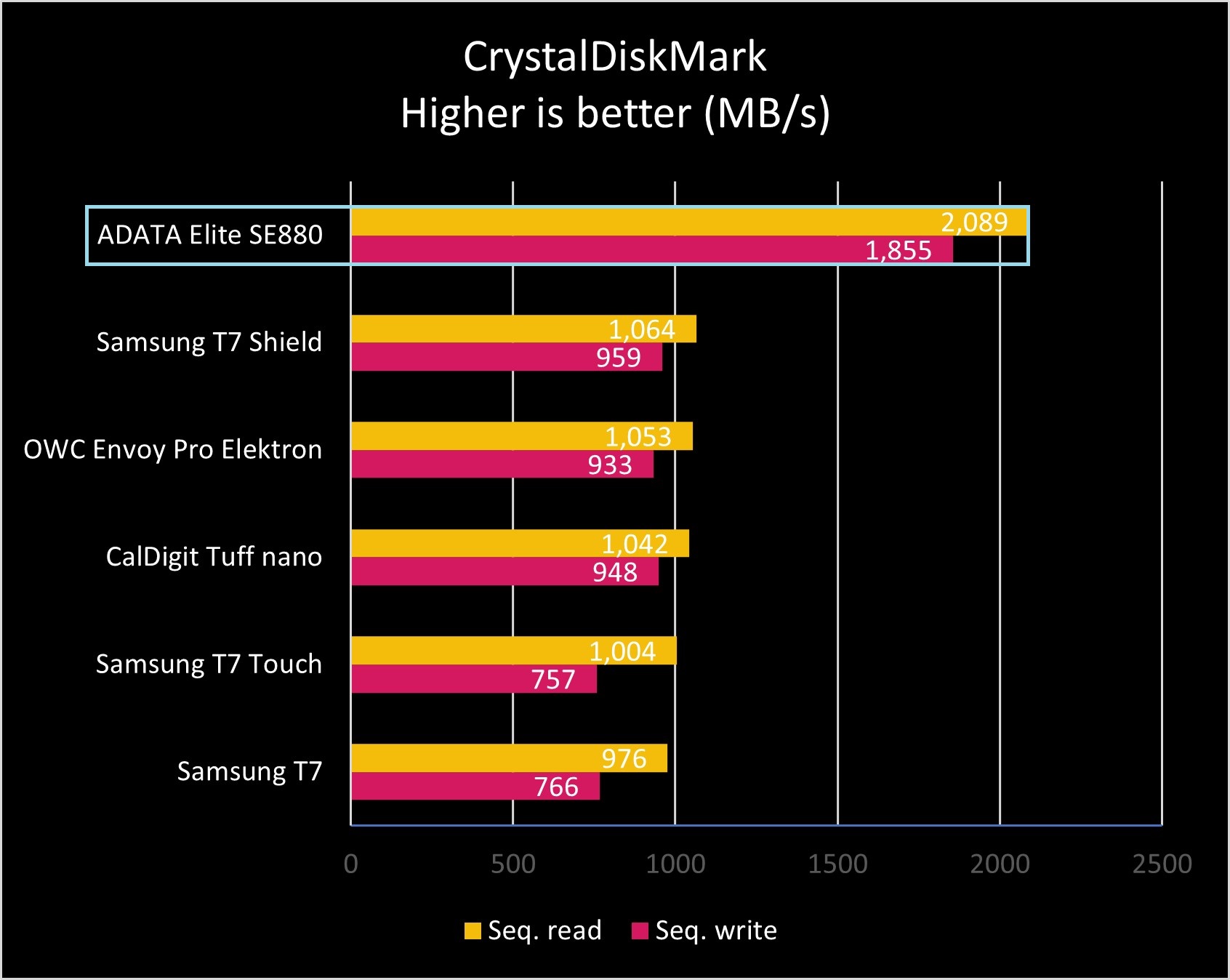
Testing with CrystalDiskMark using Thunderbolt 3 and Thunderbolt 4 delivered read speeds of 1,050MB/s and write speeds of 990MB/s.
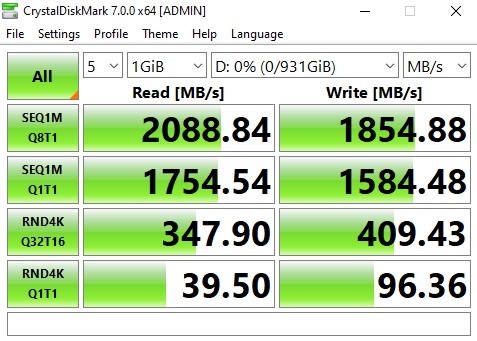
I also used ATTO Disk Benchmark to get an idea of how well the drive performs when transferring a bunch of different files sizes.
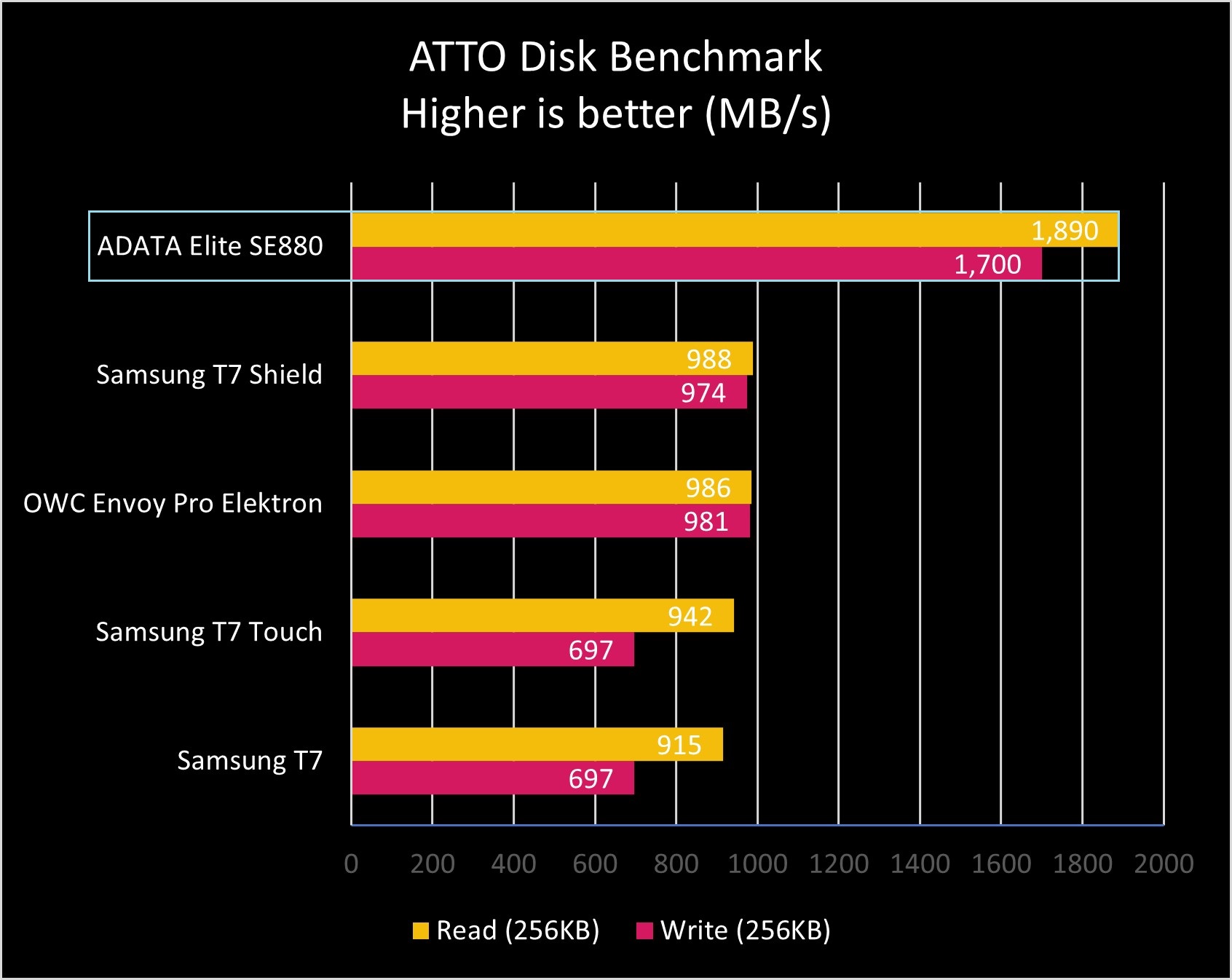
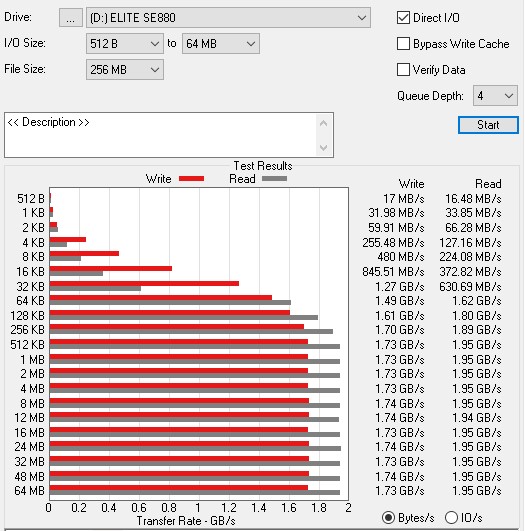
I ran one last test using PCMark 10's Full System Drive benchmark. This test can give you an idea of how well storage performs running apps and performing common workloads. The Elite SE880 hit an overall score of 1,329 with 209.16MB/s bandwidth and a 124 μs latency. To compare with an internal SSD (for which this test is usually used), the SK hynix Gold P31 M.2 PCIe 3.0 SSD hit a total score of 1,952 with 316MB/s bandwidth and an 87 μs latency.
ADATA Elite SE880: What I don't like
The ADATA Elite SE880 lives up to the performance claims when connected to a USB-C 3.2 (Gen 2x2) port, but this standard is fairly rare. There are a number of motherboards that offer native support, but if your PC isn't built onto one of those boards you'll have to look at an alternative solution. I had to buy an extra PCIe host card for the desktop PC I'm using to test the drive; it's not a particularly expensive addition (about $40), but it is something you'll have to figure into the cost if your PC doesn't already have a proper USB-C port.
You can use the SSD with any other USB-C port, but as mentioned you won't achieve the maximum performance without the Gen 2x2 standard. I tested with a Thunderbolt 3 port and got back read speeds of about 1,050MB/s and write speeds of about 990MB/s; testing with Thunderbolt 4 delivered about the same result. The drive is priced in line with 10Gbps drives, so even if you don't get the full 20Gbps performance you won't really be out any money.
The plastic endcaps on the SSD don't inspire much confidence when it comes to durability. Even running the drive over with something like an office chair caster is probably not a good idea, never mind a vehicle if you happen to drop the drive in a parking lot. If you're going to be working in the field, grabbing an SSD with full aluminum enclosure and some extra durability testing is recommended.
Finally, a lack of on-board encryption might irk some who often work with sensitive data, and the two capacities might not be enough for those working with massive file sizes.
ADATA Elite SE880: Competition
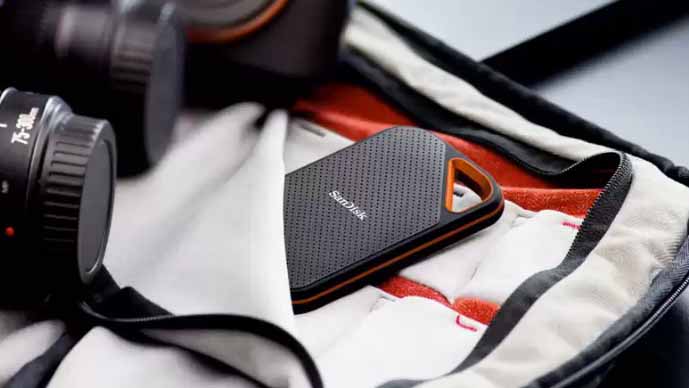
External SSDs using the USB-C 3.2 (Gen 2x2) standard are a lot more rare than those using the Gen 2 standard, but the Elite SE880 isn't without some direct competition.
The SanDisk Extreme Pro V2 from Western Digital is available in 1TB, 2TB, and 4TB capacities, it offers 20Gbps transfer speeds with USB-C 3.2 (Gen 2x2), it has 256-bit AES hardware encryption, and it's certified for IP55 water and dust resistance. It also has a handy loop built right on for use with a carabiner. This drive will do doubt appeal to those who carry their SSD everywhere, but prices start at $200 for the 1TB model and climb quickly from there. The 4TB model costs about $630.
The Kingston XS2000 is another super compact external SSD running on the USB-C 3.2 (Gen 2x2) standard. It's available in 500GB, 1TB, 2TB, and 4TB capacities, it comes with a rubber sleeve for added protection, and it has IP55 water and dust resistance certification. The 500GB model currently costs about $70, while the 1TB version costs about $108. That's cheaper than the Elite SE880, plus you can grab the larger capacities if needed. It even weighs a few grams less than ADATA's drive.
ADATA also offers an SE800 external SSD with speeds up to 1,000MB/s with a USB-C 3.2 (Gen 2) interface. It passes IP68 durability certification, affording it dust and water resistance partly thanks to an extra cover panel for the USB-C port. It also hits the MIL-STD 810G 516.6 impact certification to help it better deal with drops or abrupt shocks. A 500GB version of the rugged SE800 costs about $70, while a 1TB version costs about $103. You can get the SE800 in Blue or Black colors.
Be sure to check out our collection of the best external SSDs for more great options from Samsung, OWC, Sabrent, CalDigit, and Plugable.
Should you buy the ADATA Elite SE880?
Who it's for ...
- Those with PCs supporting the USB-C 3.2 (Gen 2x2) standard with 20Gbps performance
- Those who need a 500GB or 1TB SSD
- Those who want a drive that's super compact and lightweight
Who it isn't for ...
- Those who want a more durable drive with extra protection and elemental resistance certification
- Those who want built-in encryption
- Those who need a drive larger than 1TB
- Those without a USB-C 3.2 (Gen 2x2) port on their PC
While some of the competing drives might be more geared toward what you're looking for, the ADATA Elite SE880 is still a great little storage accessory. It lives up to the 20Gbps speeds advertised by ADATA, though its proper coupling with a USB-C 3.2 (Gen 2x2) leaves something to be desired. If you don't have a native hookup, you will need to use a PCIe slot on your motherboard for a proper expansion card.
The SE880 is the fastest external SSD I've tested, and it's also one of the tiniest drives I have in my collection. It can easily slip into a pocket, and it's so light you'll hardly know it's there. If you are taking it with you everywhere you go, some built-in data encryption capabilities and extra durability certification would be appreciated. The Kingston XS2000 checks all these extra boxes, plus it's a bit more affordable than the Elite SE880; you can also get it in larger capacities.

ADATA's Elite SE880 delivers on performance promises when connected to USB-C 3.2 (Gen 2x2), and it's backwards compatible with other USB-C standards. It's lightweight, it's compact, and it's priced competitively.

Cale Hunt brings to Windows Central more than nine years of experience writing about laptops, PCs, accessories, games, and beyond. If it runs Windows or in some way complements the hardware, there’s a good chance he knows about it, has written about it, or is already busy testing it.
